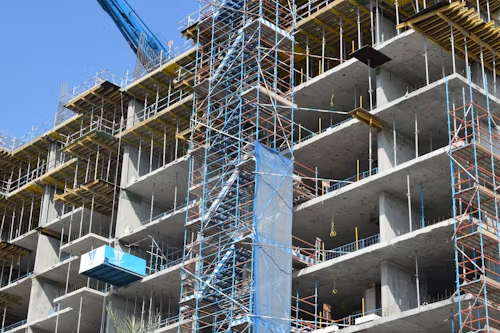
HOUSTON, TX — A coalition of Texas affordable housing developers has filed a lawsuit challenging House Bill 21, the state’s new law that imposes tighter restrictions on property tax exemptions for affordable housing projects. The lawsuit, filed Sept. 9 in Cameron County District Court, names the Bexar Appraisal District as the defendant and seeks to declare HB 21 unconstitutional while affirming that Housing Finance Corporations (HFCs) may continue to own property outside their founding jurisdictions.

The plaintiffs, including the Texas Workforce Housing Coalition and Post WB Apartments LLC, argue that HB 21 retroactively changes rules governing existing contracts and could displace large numbers of working-class residents who no longer meet the stricter affordability requirements.
"The State of Texas lured billions of dollars worth of investments from real estate developers to build affordable housing for working-class Texans with the promise of favorable tax treatment only to now pull the rug out from under those developers," said Trey Cox, partner at Gibson Dunn & Crutcher and lead attorney for the case. "The unconstitutional implementation of HB 21 is nothing less than the breakdown of the rule of law in Texas."
HB 21, signed into law by Gov. Greg Abbott in May and authored by Rep. Gary Gates (R-Rosenberg) with Senate sponsorship from Sen. Paul Bettencourt (R-Houston), was intended to tighten oversight of “traveling” HFCs. These are corporations formed by one city or county that partner with developers to claim property tax exemptions for projects outside their jurisdiction, sometimes without local approval or rent reductions.
Under the new law, projects must meet stricter requirements:
Developers and legal experts warn that these changes, especially when applied retroactively to contracts signed under Chapter 394 of the Local Government Code, create significant compliance risks, timeline delays, and financing uncertainties. Appraisal districts have reportedly begun reversing prior approvals for deals that were previously compliant under old rules, adding to the uncertainty.

"For years under current law, Housing Finance Corporations (HFCs) intended to support low-income housing have been exploited by developers partnering with out-of-jurisdiction 'traveling' HFCs," the Senate press release noted. "These partnerships allowed full property tax exemptions without rent reductions, local approval, or community benefit."
While HB 21 has drawn criticism from developers, another recent law, Senate Bill 840, has been positively received by the multifamily industry. That legislation, effective in September, simplifies the conversion of nonresidential properties into mixed-use or multifamily developments, reducing the need for complex municipal rezoning approvals.
The lawsuit highlights the tension in Texas between affordable housing policy reform and the financial incentives that developers rely on to make projects viable, raising questions about the state’s ability to balance regulation with housing supply.
Originally reported by Julie Strupp in Multi Family Dive.